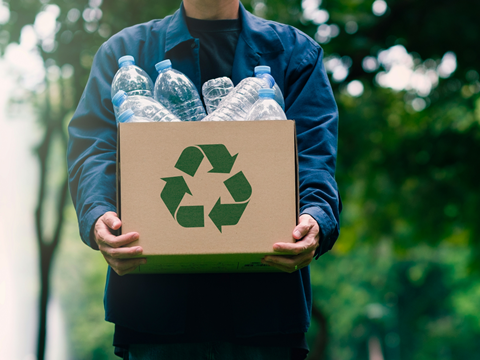
Plastics Recyclers Europe (PRE) has expressed concern at the “alarming” downward trend in the European plastics recycling market, stating that recycling companies will continue to go out of business into 2024 “unless the situation is addressed urgently”.
The increasing lack of demand for recyclates produced in Europe, the reduced investments in domestic recycling and the increase in imports of recyclates from outside the EU have been suffocating the European plastics recycling industry in the last few years and feeding the existing recession on the market, PRE says.
At the beginning of this year, the plastics recycling industry warned about the signs of difficult market conditions with no interim prospects of recovery. Ten months later, PRE adds that the primary issue continues to be the increase in imports of polymers from outside the EU, with “questionable claims” of recycled content and “no effective verification and traceability measures” in place.
PRE states that, in order to address this, it will be important to restrict market entry for imports that fail to meet the EU’s environmental requirements, citing Mario Draghi’s report on EU Competitiveness. It adds that creating a level playing field will be key to making the green transition sustainable and safeguarding the competitiveness of the EU’s industry in the long run.
It also asserts that the measures and targets introduced in the core pieces of EU legislation must now be enforced urgently and effectively, but cautions that achieving these targets is currently unrealistic, as capacities would need to at least double by 2030. The organization asks European Institutions to “act now and create a genuine circular single market” for plastic waste and recycling.
PRE states that the newly elected EU Institutions could “take a positive turn” through the new EU Circular Economy Act and the Clean Industrial Deal, but immediate measures are needed to solve the key issues in the existing plastics sorting and recycling infrastructure and future investments; without these measures, it believes the “future of European plastic recycling appears uncertain”.
In January, PRE reported that the total European installed plastics recycling capacity saw a 7% decline in growth rate year-on-year and reached 12.5 million tonnes in 2022, potentially putting Europe at risk of missing legislative targets. The decrease in growth rate from 17% to 10% year-on-year was attributed to heavy market disruptions in the European market since 2020.
On the other hand, TOMRA announced this summer that it had created a scalable, open-access ecosystem to recycle and reuse materials from retired TOMRA technology, with the potential to manage the recycling of black plastic across a range of industries. Working with European Recycling Platform in Norway, TOMRA says its Reverse Vending Machines (RVMs) are ‘responsibly decommissioned’ at their end of life. During disassembly, a range of black plastic parts are pre-sorted by polymer type before being passed to industrial plastics compounder Polykemi to be recycled in a quality-assured material stream.
We recently spoke to ALPLA, a finalist in this year’s Sustainability Awards, about its recycling method for coloured plastics and red rHDPE, utilized for Werner & Mertz’s Rorax pipe unblocker. Nominated in the Commercialized Best Practice category, the PCR material is apparently sourced from ALPLA’s own recycling facilities and the colour streams are separated through a fine sorting step.
If you liked this story, you might also enjoy:
The ultimate guide to the Packaging and Packaging Waste Regulation in 2024
How are the top brands progressing on packaging sustainability?
Sustainable Innovation Report 2024: Current trends and future priorities
Everything you need to know about global plastic sustainability regulation














No comments yet